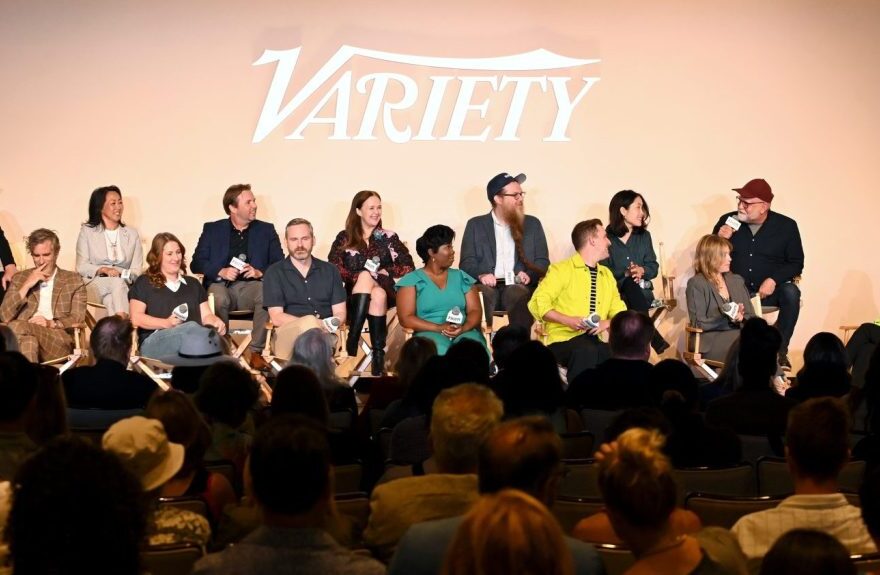This season, television was pushed to its limits and into spaces that teetered genres and kept audiences guessing. From an improv show about a fake court trial to mockumentaries about public schools and vampires, a sci-fi drama about nuns, the 2023 Emmy nominations were a grab bag full of interesting television, and artisans helped take them even further.
Variety’s Creative Collaborators: The Nominees brunch, hosted by Variety’s senior artisans editor Jazz Tangcay, brought together this year’s Emmy-nominated casting directors, designers, editors and other exciting creators to reflect on how they defied tropes and took fresh approaches to TV.
Panel guests included Tom Campbell, EP of “RuPaul’s Drag Race”; Susie Farris, casting director on “Jury Duty”; Chris Gehrt, casting director on “Abbott Elementary”; Yana Gorskaya, editor for “What We Do in The Shadows”; Michael Harte, picture editor for “Still: A Michael J. Fox Movie”; Charlene Lee, casting director on “Beef”; Arlene Martin, department head hairstylist for “P-Valley”; Brett Morgen, director, producer, editor and music editor on “Moonage Daydream”; Jamie Hartman, songwriter for “Ted Lasso”; Melissa McCoy, editor on “Ted Lasso”; Bryan Parker, supervising sound editor for “Mrs. Davis”; Judy Rhee, production designer on “Poker Face”; and Mitchell Travers, costume designer on “George & Tammy.”
For Morgen, creating the spacey David Bowie tribute “Moonage Daydream,” forced him think outside of the norm, fusing a documentary with a musical drama, the only way to properly pay homage to the musician. As a producer and music editor on the film, he used sound to push the envelope in documentaries.
“The sound work really began in the writing phase by swiping a track, listening to playlists that would support the script, and then acquiring the stems from all of those songs,” Morgen said. “We remixed every song from scratch, all 40 songs.”
“I was using the musical standards as a narrative device, a storytelling device,” he added. “It was a really incredible sort of immersive exploration into David’s archives, into his thought process, along with being able to collaborate with this incredible sound team after sort of being in isolation for five and a half years.”
When creating a film about Michael J. Fox’s life, editor Harte and the production team wanted something that felt unexpected from what audiences have seen before. “We decided that we weren’t going to do any stereotypical documentary techniques,” Harte explained. Through conversations with Fox and director Davis Guggenheim, they decided on no “sad violins” and to get creative with the material they acquired throughout interviews and archival digging.
“Mrs. Davis” sound editor had a similar approach to genre tropes in sound. In scenes scripted to be funny, the sound team opted for more serious and sinister tones, rather than classic “humor sounds.”
“It was obvious when the first time I started reading scripts that they wanted us to be on an absolute knife edge between some very wacky, very outlandish comedy, but baked into the entire episode of the season of the show are very, very high stakes,” said Bryan Parker. “So, from a sound perspective, we decided that the funniest moments needed to sound the most serious.”
Whatever it was, all of these Emmy nominees helped bring innovation to television that helped open the hearts and minds of their audiences. Even “Drag Race” found new inspiration despite its decade plus run while creating amidst growing hate speech and litigation targeted against trans individuals and drag culture. Tom Campbell, EP of the show, said, “Drag queens are the marines of reality TV.”
Watch the full conversation above.
Read More About:
Source: Read Full Article
